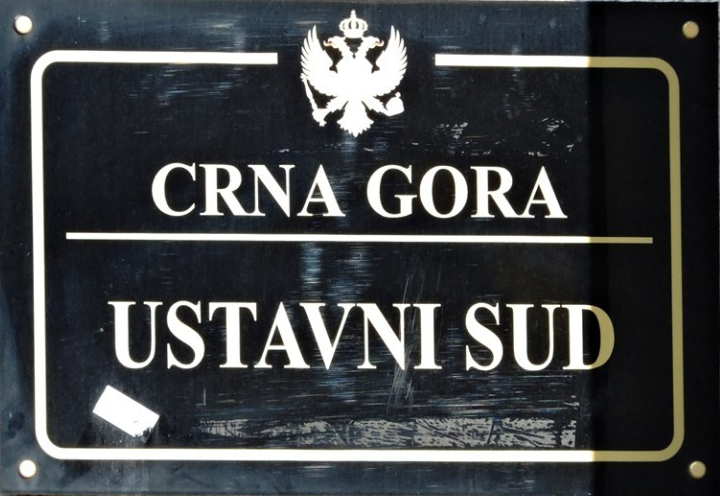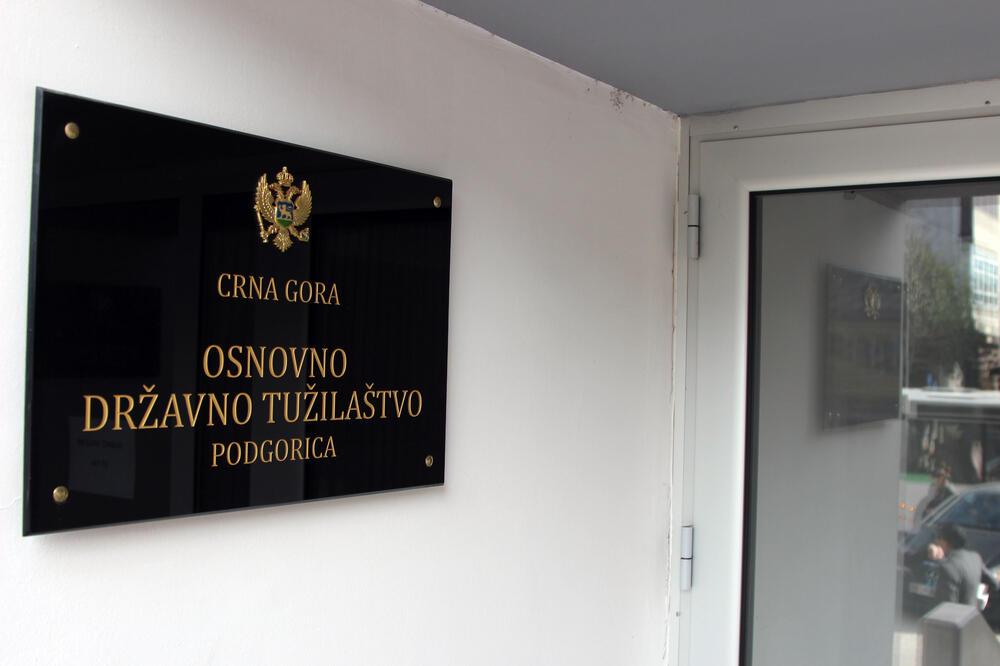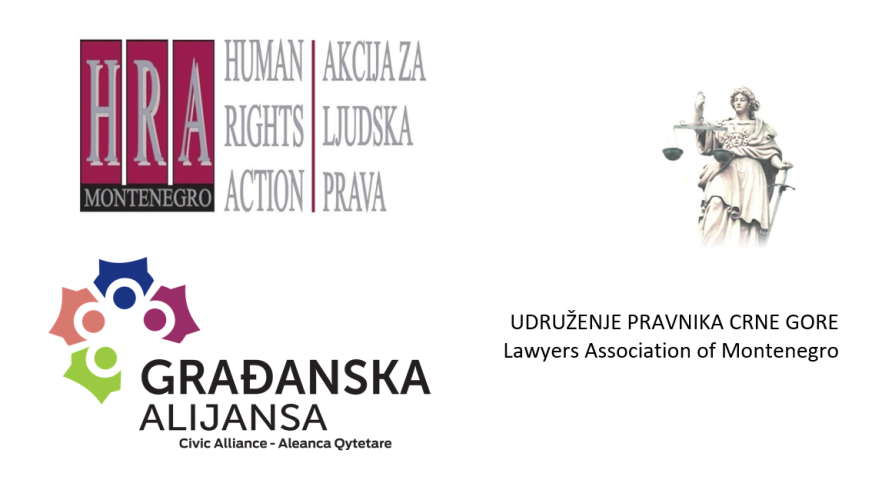
URGENTLY ELECT JUDGES OF THE CONSTITUTIONAL COURT – THE BLOCKADE PREVENTS THE PROTECTION OF ELECTORAL RIGHTS AND OTHER HUMAN RIGHTS
19/09/2022
CRIMINAL REPORT REGARDING THE TORTURE OF JOVAN GRUJIČIĆ WAS REJECTED ONCE AGAIN – HUMAN RIGHTS ACTION PROPOSES THAT THE SUPREME STATE PROSECUTOR’S OFFICE TAKE OVER THE CASE
26/09/2022PROTEST AGAINST FAILURE TO ELECT MEMBERS OF THE JUDICIAL COUNCIL, THE LAW ON THE ASSEMBLY SHOULD ENSURE THE RESPONSIBILITY OF PEOPLE’S DEPUTIES

We hereby express our great disappointment over the fact that the Assembly of Montenegro failed to elect any of the four new members of the Judicial Council from the ranks of distinguished lawyers, as this will further and indefinitely postpone the reform of that key state body, charged with the proper functioning of the judiciary, and slow progress towards the European Union.
A new competition for members of the Judicial Council can only be announced in two months. In the atmosphere of the ‘political green market’, which does not appreciate serious biographies of candidates, the result of the next competition will also be called into question.
Although the failure to elect new members of the Judicial Council did not block the work of the above body, as was the case with the Constitutional Court, the four-year failure to elect new members of the Council additionally shows that the state is unable to renew its bodies because its Parliament is not performing its function.
Failure to elect judges of the Constitutional Court and members of the Judicial Council will certainly slow down the negotiations for membership in the European Union. Although as many as three quarters of the population of Montenegro are in favour of that membership, people’s deputies are not implementing the will of the majority.
Democratic elections are an opportunity to verify the justification of such behaviour, while the Law on the Assembly should ensure that all people’s deputies at least regularly attend Assembly sessions.
We recall that the Judicial Council has been functioning with the same three members from the ranks of distinguished lawyers for the last eight years: professor Vesna Simović Zvicer, attorney Loro Markić and lawyer Dobrica Šljivančanin have served for two mandates each, while the fourth member, Professor Mladen Vukčević, has resigned almost three years ago (on 23 December 2019). His position has been vacant since then because the Assembly was unable, for four years, to elect new members. The competent parliamentary committee has interviewed 45 candidates and proposed 12 to the Parliament. Eleven of them did not receive support.
Only one new member, Professor Radoje Korać, was finally elected on Wednesday. He received 65 votes of the deputies, while the three remaining candidates – Professor Nebojša Vučinić and attorneys Dragan Šoć and Fikret Kurgaš – did not receive the required three fifths majority, i.e. 49 votes because they lacked two, three and six votes, respectively.
According to the available voting data, of the 81 people’s deputies in the Assembly of Montenegro, 65 (80%) participated in the voting on Professor Korać, 48 (59%) in the voting on Professor Vučinić, 47 (58%) in the voting on attorney Kurgaš, and 46 (56%) in the voting on attorney Šoć. All four candidates were voted on within a period of ten minutes, which means that some of the 65 deputies who attended the Assembly session that day did not participate in the voting at all (by expressing the position „for“, „against“ or „abstained“). We believe that this sort of behaviour of people’s deputies must be deemed unacceptable, as it reflects irresponsibility towards their parliamentary function.
All the deputies from the Bosniak Party (BS), the Democratic Alliance (DEMOS), the Democratic Party of Socialists (DPS), the Democratic Union of Albanians (DUA) and the Civic Movement URA voted for all four candidates.
Deputies from the Democratic Montenegro did not vote for any candidate. The Democratic Front voted only for Professor Korać (14 out of 21 deputies voted), and only the deputy from PzP voted for Professor Vučinić.
Deputies of the Social Democratic Party, Liberal Party and New Democratic Forces FORCA voted for three candidates – Professors Vučinić and Korač and attorney Kurgaš – while deputies from the Social Democratic Party of Montenegro voted only for Professors Vučinić and Korač.
The Socialist People’s Party (SNP) voted for three candidates – Professor Korać, and attorneys Dragan Šoć and Fikret Kurgaš. However, it is astonishing that this party denied its support to Professor Vučinić, even though its deputies voted for him in the first round, less than one month ago. We expect people’s deputies of the SNP – Bogdan Božović, Danijela Djurović, Dragan Ivanović, Dragan Vukić and Milosava Paunović – to explain what changed in the meantime, causing them to now deny Professor Vučinić their support?
Why is it that Professor Vučinić, a law professor and former judge of an international court of justice, does not deserve to be a member of the Judicial Council as a respected lawyer in Montenegro, despite the fact that the Parliamentary Assembly of the Council of Europe had evaluated him as a „recognised legal expert of high moral standing“ and elected him a judge of the European Court?
It is also unclear why support was denied to attorneys Šoć and Kurgaš, who lacked six and two votes, respectively, to be elected.
None of the deputies or parties that denied support to the candidates for new members explained why they believed that the existing members of the Judicial Council, who have been part of that body for more than eight years, should remain in the Council for a third term, instead of giving new members an opportunity to reform the work of this body? It was the existing members of the Judicial Council from the ranks of distinguished lawyers who had voted for the unconstitutional third mandate of Vesna Medenica as President of the Supreme Court of Montenegro, and for the unlawful third, sixth and eighth mandates of the same court presidents, which is something that has been particularly criticised by the European Commission and GRECO.
Human Rights Action
Civic Alliance
Association of Lawyers of Montenegro







 English
English Montenegrin
Montenegrin